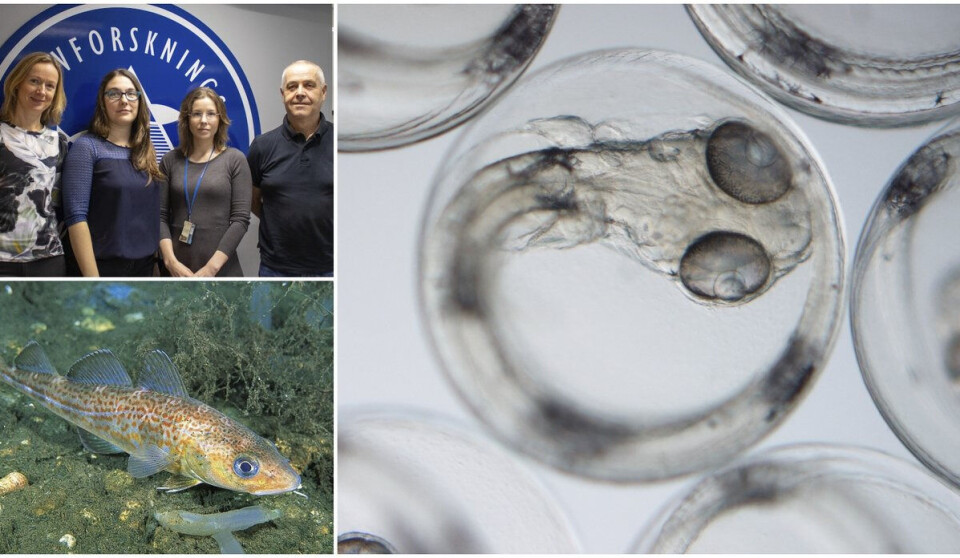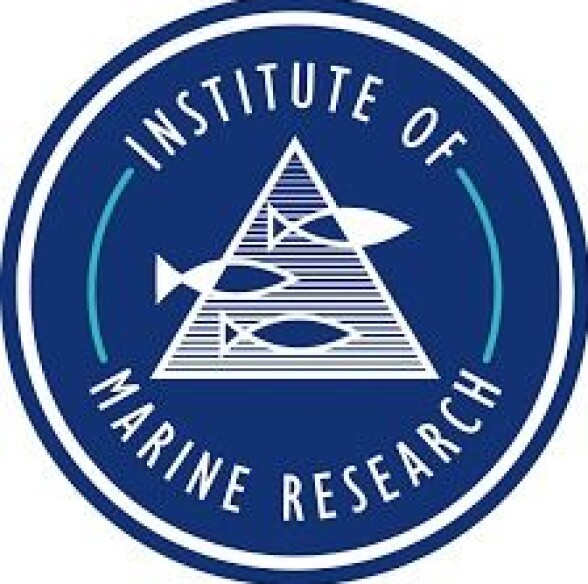THIS CONTENT IS BROUGHT TO YOU BY the Institute of Marine Research - read more

New discovery: Cod can adjust to climate change – from one generation to the next
The temperature the mother experiences affects how the offspring develop.
“We have investigated how fish can adapt to climate change, from one generation to the next,” says researcher Kaja Skjærven at the Institute of Marine Research (IMR).
Because when the climate changes and the oceans become warmer, will the fish also adapt to the new environment? The scientists from IMR have come a little closer to an answer.
‘Programming’ of offspring changes
In a new study, it emerges that something seems to change from mother to offspring when the temperature of the ocean rises. And the warmer it gets, the greater the changes.
But what changes? We're specifically referring to the genetic instructions passed from the mother fish to her offspring.
The mother fish uses its genes to control the development of tissues, organs, and growth in offspring through these important instructions. This is a kind of 'programming', if you will.
The instructions are called mRNA or ‘messenger RNA’ in scientific terms.
To determine if these 'messages' change with the climate, the researchers conducted practical tests.
Researchers examined both mother fish and eggs
In large green tanks, cod were subjected to different temperatures. Some lived in normal seawater temperatures of six degrees Celsius, while others were in significantly warmer tanks, heated to either nine or twelve degrees Celsius.
The researchers followed the fish both before and during spawning in the tanks before they were euthanized. Then the researchers could examine both the roe and liver in the mother fish, as well as the mRNA from the mother in the fish eggs.
“We found that the instructions changed along with the temperature, depending on the dose. The biggest changes were seen in the warmest tank,” explains Skjærven.
“Another finding is that the temperature the mother fish experienced several months before spawning influenced these instructions in the embryos.”
The environment of the mother is crucial for the offspring's development
“Our results suggest that the environment the adult fish lives in is crucial for the genetic instructions that govern how the offspring will develop. If the environment changes, so do the instructions,” says IMR researcher Olav Kjesbu, who led the project.
“So, the 'programming' appears quite flexible, adapting the offspring to the environment they will inhabit. It may indicate that cod has an inherent ability to adapt to changes in the environment from one generation to the next. But that probably only applies if the temperature doesn't get too high.”
Reference:
Kaja Skjærven et.al.: Ocean warming shapes embryonic developmental prospects of the next generation in Atlantic cod. ICES Journal of Marine Science, 2024.

This content is paid for and presented by the Institute of Marine Research
This content is created by the Institute of Marine Research's communication staff, who use this platform to communicate science and share results from research with the public. The Institute of Marine Research is one of more than 80 owners of ScienceNorway.no. Read more here.
More content from the Institute of Marine Research:
-
These whales have summer jobs as ocean fertilisers
-
Have researchers found the world’s first bamboo coral reef?
-
Herring suffered collective memory loss and forgot about their spawning ground
-
Researchers found 1,580 different bacteria in Bergen's sewage. They are all resistant to antibiotics
-
For the first time, marine researchers have remotely controlled an unmanned vessel from the control room in Bergen
-
Researchers have discovered a new deep-sea octopus at a depth of 2,500 metres




































